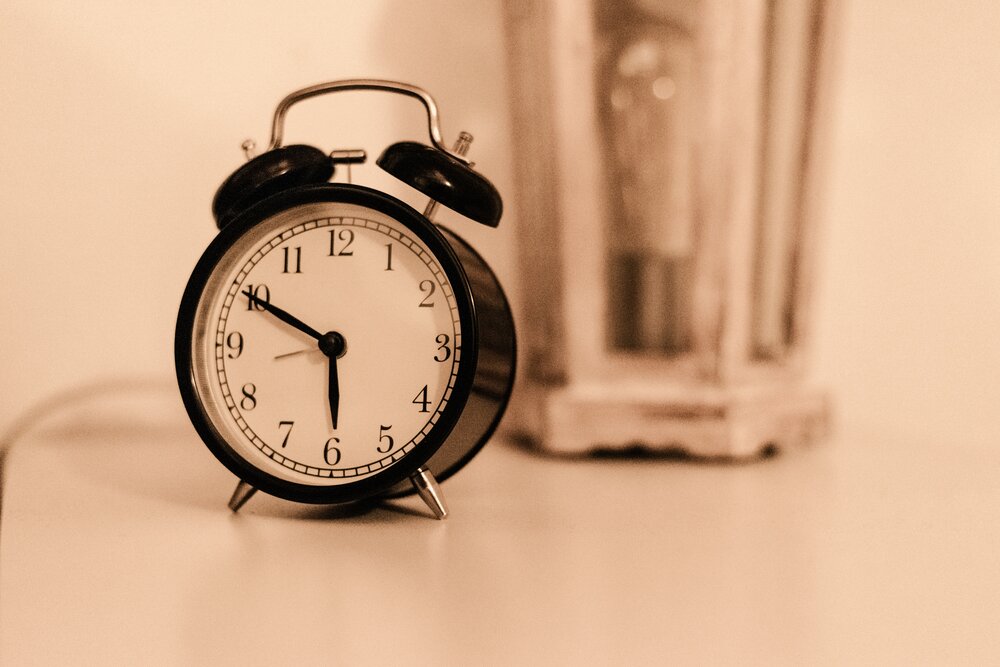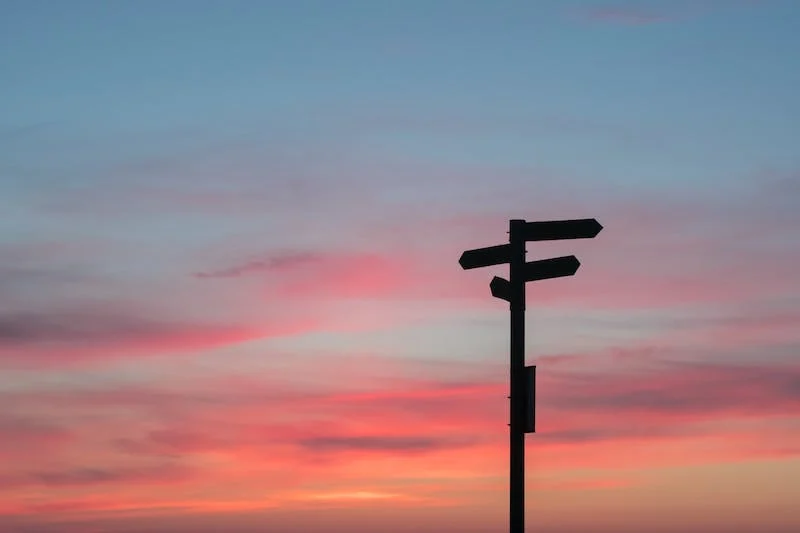Like myself, nearly all the founders and entrepreneurs I’ve met have struggled with their sleep. It’s classic: When you build your own business, you also build your own daily structure. But unlike a normal nine-to-five, there’s no set routine, so when there’s too much to do in a day and time is scarce, we tend to sacrifice sleep and tell ourselves we don’t really need it.
On top of that, ideas often come first (whether that’s healthy or not). When you’re on fire and wake up with the next greatest solution in the middle of the night, you inevitably want to chart it out—not simply go back to bed.
And yet, another part of us knows just how important sleep is. Both the science and that feeling of a real night’s rest tell us how critical it is to operating at our highest level. This year, I’ve tracked my sleep habits and done some research to figure out how to optimize my sleep so I can operate at my highest level. In all honesty, I’m not consistent with getting good sleep yet, but I am consistent with my attention to it and the practices to manage it. It’s those practices—the daily routines and habits—that I strive to share and keep improving upon.
Why is Sleep Important for Entrepreneurs?
In the summer of 2019, I took on the project of learning more about sleep and how to cultivate an environment that would allow me to sleep better. I picked up a copy of Why We Sleep: Unlocking the Power of Sleep and Dreams by Matthew Walker and bought myself an Oura, a sleep- and activity-tracking smart ring. Applying the best practices for optimal sleep from the book, I tracked the personal sleep data collected by my Oura every night to see how I did.
I was shocked by how much I learned from the book. For instance, your chronotype (“early-birdedness” or “night-owledness”) is largely genetic—who knew. And adenosine build-up in your cells and circadian rhythm are the two separate, independent processes that dictate how tired or alert you feel. I also learned that a driver who’s been awake for 17-19 hours can be just as impaired as a driver with a blood alcohol concentration of 0.5%. And with more hours awake, that number goes up to 0.1%—legally drunk. (Even more, every hour, someone dies in a traffic accident in the U.S. due to a fatigue-related error.) There are also strong links between poor sleep and diabetes, obesity, Alzheimer’s, and mental illness.
The book additionally shared research from a 2015 study that found that under-slept employees are less productive, less motivated, less creative, less happy, lazier, and even more unethical. “The frontal lobe, the area responsible for self-control and reigning in emotional impulses,” Walker explains in the book, “is taken offline by a lack of sleep, leading to emotional volatility and rash decision-making.”
But it’s not just the frontal lobe that affects our decision-making. It turns out that non-rapid eye movement (NREM) sleep—or what we colloquially call “deep sleep”—is what helps with reflection. It’s how your brain stores and reinforces the new facts and skills it gathered during the day. Rapid eye movement (REM) sleep, on the other hand, helps us integrate these new facts or skills with our preexisting knowledge. REM sleep is crucial in building a more accurate model of how the world works in our brain—which underpins our creative insights and problem-solving abilities. (And, incidentally, alcohol happens to be one of the most powerful REM suppressors we know!)
At our core, founders and entrepreneurs are problem-solvers. That is how we get into entrepreneurship in the first place, and it’s what keeps us going—solving the next problem, figuring out inventive solutions, and melding information from a variety of sources to see what needs to happen next. Considering the beneficial effects of good sleep and the negative effects of too little sleep on our problem-solving capabilities (and our emotional capacity to lead well), the argument for optimizing sleep is pretty clear.
The Realization
When I was living the startup life, I could fall asleep fine, but I would often wake up in the middle of the night with what always seemed like the next greatest business idea. So, I would get out of bed, typically around 2 AM, and get to work on starting to execute it right then. By about 4 AM I would get back to bed feeling accomplished—only to be wrecked the next day.
Prior to my sleep experiment, I reviewed an old data set from 2018, the year during which my sleep as an entrepreneur was at its worst, reflecting the pattern described above. On average during this period, I was getting about 7 hours of time in bed (not even time asleep) just once every three nights; I always slept in on weekends, keeping no consistent wake time; and I was waking up and staying up two to three nights per week, typically for two-hour sprints. This was my status quo, one that, I realized, clearly needed to change. So, I set about conducting my sleep experiment.
The Experiment
To improve sleep, you first need to cultivate the proper environment, which often takes just a few simple tweaks to your habits and schedule. In my summer 2019 experiment, I started to:
- Turn off screens, or use blue-blocking glasses, 3 hours before I went to bed;
- Stop drinking liquids 2-4 hours before bed;
- Seek sunlight in the mornings and avoid late-afternoon sun exposure;
- Maintain complete darkness at night with blackout curtains or an eye mask; and
- Set the thermostat at 65° F at night.
However, my over-active “sleeping” mind would still wake me up at 2 AM. Just trying to ignore my late-night processing didn’t work. So, I started to simply give these midnight ideas and worries acknowledgment—and even thanks, for my mind’s efforts to help me stay on top of things—knowing they’d still be there in the morning. But instead of getting up and executing on them in the middle of the night, I would just write them down, maybe read a little bit, and go back to bed.
The Data
Since that summer, my sleep has had its fair share of yoyo-ing, and my Oura data shows it. At first, when I implemented all of the above-recommended measures in 2019, it improved. In August 2019, however, I traveled to Thailand and consequently lost some traction (blame jet lag and Chang). Reimplementing the recommendations from September to December 2019, my sleep improved again and stayed pretty consistent.
Come January 2020, I got in the thick of starting my current business and lost my better sleep habits—getting less and less time in bed, going to bed later and later. In June, I reprioritized sleep, went to bed earlier, started waking up at a more consistent time, and saw improved data from June to September 2020 because of it. Under more stress in October and November, my sleep suffered again, but in December, I was able to kick it back into gear and salvage good patterns by the holiday break.
Below, I’ve included two charts with my Oura data from July 2019 through December 2020. The first chart tracks both the amount of time in bed and the total sleep time, the purple line for the time in bed corresponding to the y-axis on the left and the orange line corresponding to the total sleep time on the y-axis on the right. The second chart shows my bedtimes (purple) and wake-up times (orange).
Time in bed (purple) and total sleep (orange)

Bedtime (purple) and wake-up time (orange)

You can see from these charts that my sleep success hasn’t been steady. The crests and troughs displayed are differences of roughly 20 minutes per night. When these sleep numbers average across an entire month, that difference becomes 10 hours of extra sleep per month. If we were to zoom in to see the data in daily or weekly form, we’d actually see a more drastic roller coaster—some consistently great nights and some consistently poor nights, rising and falling like a wave, depending on my levels of exercise, the amount of caffeine or alcohol I’ve consumed, and so on. Thus, even knowing the importance of quality sleep for high performance, I also know how easy it is to fall out of a good sleep pattern when we want to keep chasing new ideas hard.
My goal is to get 7.5 hours of sleep time (not just time in bed) every night. Delineated on the graph by the orange line, you can see that I was closest to this in September 2019, then got worse then better then worse then better again. Welcome to the roller coaster.
But when I feel my sleep slipping, here’s what I try to remember: Although we call it “hustling,” success is a marathon, not a sprint. And sleep is how you keep your best weapon—your mind—at its sharpest. If you find yourself in the same boat as me right now, accepting suboptimal sleep, I encourage you to also join me in continuously chasing sleep-optimization, because it is also self-optimization, and the more we prioritize that, the more successful our ideas, our businesses, and we ourselves will be.
Love what you’re reading? Subscribe to our newsletter and never miss out on our latest posts.







